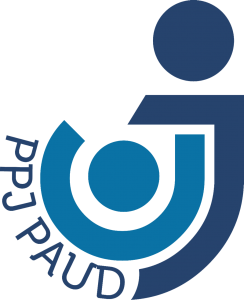Applying token economy to improve attention of child with ADHD
DOI:
https://doi.org/10.26555/jecce.v3i1.1926Keywords:
ADHD, attention, token economyAbstract
A child should be able to pay attention well during task working. But, children with Attention Deficit Hyperactivity Disorder (ADHD) experience difficulty in focusing attention or in concentrating when doing a task, both at home or at school. In the other hand, there is a behaviour modification technique that effectively proven in increasing concentration of child with ADHD.  The purpose of this study was to find out the effectiveness of token economy in improving the attention of children with ADHD when completing a task. The present study employed a single subject, a five years-old male Early Childhood Education student. The intervention was given in the form of token economy for two weeks through cooperation with parents. Observation and interviews were held to collect data regarding attention difficulty in engaging in the learning process and doing a task. The result of the study showed that there is an improvement in attention duration; the subject was able to give attention to the task in a longer duration (more than 5 minutes). The parents are expected to be more assertive and committed to applying token economy at home.
References
Baihaqi, M., & Sugiarmin, M. (2006). Memahami dan Membantu Anak ADHD. PT. Refika Aditama.
Corey, G. (2007). Teori dan Praktek Konseling dan Psikoterapi. PT. Refika Aditama.
Davidson, G. C. (2010). Psikologi Abnormal. Rajawali Press.
DuPaul, G. J., Eckert, T. L., & Vilardo, B. (2012). The Effects of School-Based Interventions for Attention Deficit Hyperactivity Disorder: A Meta-Analysis 1996–2010. School Psychology Review, 41(4), 387–412. https://doi.org/10.1080/02796015.2012.12087496
Fiyati, S. U. (2019). Konseling Islam melalui token ekonomi dalam upaya meningkatkan konsentrasi belajar pada seorang anak ADHD (Attention Deficit Hyperactivity Disorder) di SLB C Kemala Bhayangkari 2 Gresik [Undergraduate, UIN Sunan Ampel Surabaya]. http://digilib.uinsby.ac.id/29185/
Hayati, R. (2019). Token Ekonomi pada Anak dengan Gangguan ADHD. Eksistensi, 1(2), Article 2. https://doi.org/10.29406/eksis.v1i2.1690
Indryani, Y. A., & Wahyudi, T. (2019). Situasi Kesehatan Jiwa di Indonesia. Pusat Data dan Informasi Kementerian Kesehatan Republik Indonesia.
Kaplan, H. I., & Sadock, B. J. (2006). Kaplan dan Sadock; Sinopsis Psikiatri; Ilmu Pengetahuan Perilaku Psikiatri Klini. Binarupa Aksara.
King, L. A. (2010). Psikologi Umum: Sebuah Pandangan Apresiatif. Salemba Humanika.
Kring, A. M., Johnson, S. L., Davidson, G., & Neale, J. M. (2012). Abnormal Psychology Twelfth Edition. Wiley.
Miltenberger, R. G. (2003). Behavior modification (Principles and Procedures) (5th ed.). Wadsworth Cengange Learning.
Mulyani, R. R. (2013). Penerapan token ekonomi untuk meningkatkan atensi dalam mengerjakan tugas pada anak ADHD. Psychological Journal: Science and Practice, 1(1), Article 1. http://202.52.52.22/index.php/pjsp/article/view/1343
Muzdalifah, R. (2019). Efektivitas penerapan token ekonomi untuk meningkatkan konsep diri akademik siswa tunagrahita. Jurnal Ecopsy, 6(2). https://doi.org/10.20527/ecopsy.v6i2.5902
Ni, H.-C., & Gau, S. S.-F. (2015). Co-occurrence of attention-deficit hyperactivity disorder symptoms with other psychopathology in young adults: Parenting style as a moderator. Comprehensive Psychiatry, 57, 85–96. https://doi.org/10.1016/j.comppsych.2014.11.002
Novriana, D. E., Yanis, A., & Masri, M. (2014). Prevalensi Gangguan Pemusatan Perhatian dan Hiperaktivitas pada Siswa dan Siswi Sekolah Dasar Negeri Kecamatan Padang Timur Kota Padang Tahun 2013. Jurnal Kesehatan Andalas, 3(2), Article 2. https://doi.org/10.25077/jka.v3i2.52
Ollendick, H. T. (1998). Child Behavioral Assessment. Pergamon Press.
Rahmawati, K. R. (2013). Token Economy untuk meningkatkan atensi pada anak Attention Deficit Disorder. Procedia : Studi Kasus Dan Intervensi Psikologi, 1(1), Article 1. https://doi.org/10.22219/procedia.v1i1.1374
Reed, D. D., & Martens, B. K. (2011). Temporal discounting predicts student responsiveness to exchange delays in a classroom token system. Journal of Applied Behavior Analysis, 44(1), 1–18. https://doi.org/10.1901/jaba.2011.44-1
Sanders, M. R. (2008). Triple P-Positive Parenting Program as a public health approach to strengthening parenting. Journal of Family Psychology: JFP: Journal of the Division of Family Psychology of the American Psychological Association (Division 43), 22(4), 506–517. https://doi.org/10.1037/0893-3200.22.3.506
Santrock, J. W. (2007). Life-Span Development Perkembangan Masa Hidup Edisi Kelima Jilid I. Penerbit Erlangga.
Sayal, K., Prasad, V., Daley, D., Ford, T., & Coghill, D. (2018). ADHD in children and young people: Prevalence, care pathways, and service provision. The Lancet Psychiatry, 5(2), 175–186. https://doi.org/10.1016/S2215-0366(17)30167-0
Wahidah, E. Y. (2018). Identifikasi dan Psikoterapi terhadap ADHD (Attention Deficit Hyperactivity Disorder) Perspektif Psikologi Pendidikan Islam Kontemporer. Millah: Jurnal Studi Agama, 17(2), 297–318. https://doi.org/10.20885/millah.vol17.iss2.art6
Downloads
Additional Files
Published
How to Cite
Issue
Section
License
Authors who publish with this journal agree to the following terms:
- Authors retain copyright and grant the journal right of first publication with the work simultaneously licensed under a Creative Commons Attribution-ShareAlike 4.0 International License that allows others to share the work with an acknowledgement of the works authorship and initial publication in this journal.
- Authors are able to enter into separate, additional contractual arrangements for the non-exclusive distribution of the journals published version of the work (e.g., post it to an institutional repository or publish it in a book), with an acknowledgement of its initial publication in this journal.
- Authors are permitted and encouraged to post their work online (e.g., in institutional repositories or on their website) prior to and during the submission process, as it can lead to productive exchanges, as well as earlier and greater citation of published work (See The Effect of Open Access).















